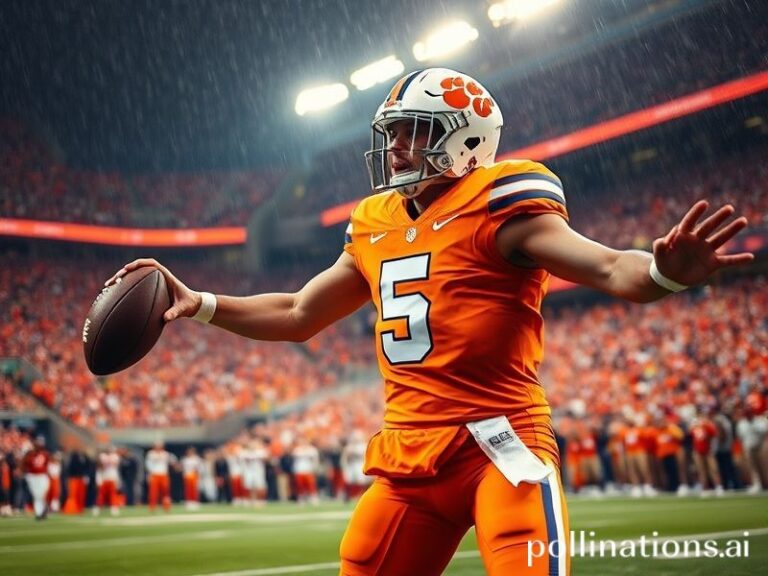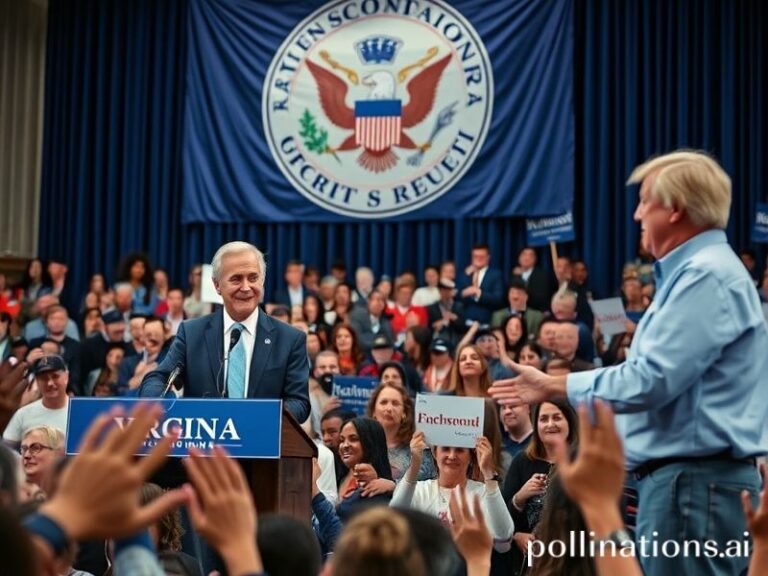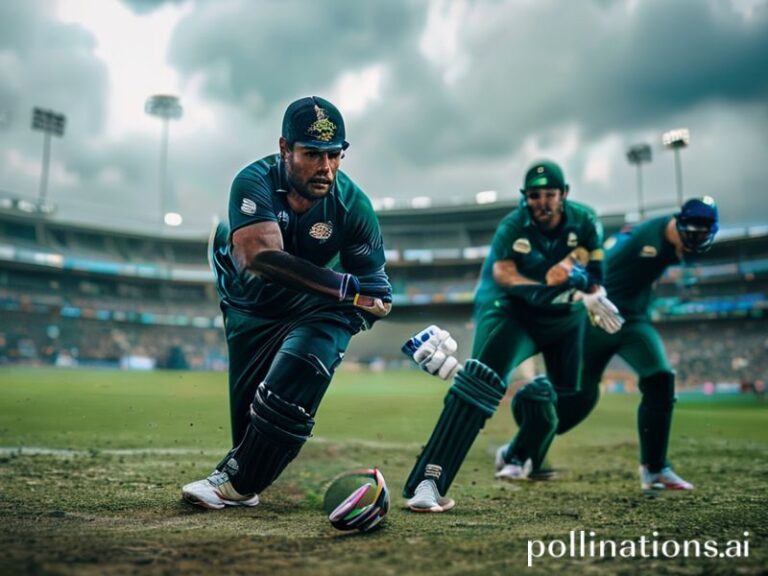Seagulls vs Zombies: How Brighton-Everton Became the Global Metaphor for Late-Stage Football
A modest fishing town on England’s south coast and a once-mighty Merseyside port—two places whose combined GDP couldn’t buy a decent flat in Hong Kong—will on Saturday send eleven men apiece onto a rectangle of grass to chase a sphere of stitched polyurethane. To the uninitiated this is merely Brighton & Hove Albion versus Everton, Matchday Whatever in the English Premier League’s relentless content drip-feed. To the rest of the planet it is something far more sinister: proof that late capitalism can monetize even existential dread and sell it back to us as “Super Sunday.”
From Singapore to São Paulo, screens will flicker with the Amex Stadium’s trademark sea-salt glare. In Jakarta, ride-hailing drivers will illegally stream the game on cracked phones while pretending to check maps. In Lagos, betting shops will pray for a 93rd-minute Seagulls corner like it’s a sovereign bailout. The global audience—roughly the population of Germany plus a few million insomniacs—will watch not because they adore Neal Maupay’s finishing, but because the Premier League is the last universally accepted lingua franca after English and emojis.
Everton arrive like a Gothic novella that refuses to end. A club so steeped in nostalgia they still sing about a 1980s trophy haul the way Americans sing about manufacturing jobs. Their fans travel clutching boarding passes for flights of fancy: European nights, league titles, the sudden moral redemption of a squad assembled like a tax-loss harvest. Meanwhile Brighton’s supporters—many of whom chose the club because the Amex is reachable by train from London without changing at Clapham—have the breezy fatalism of people who know the universe is indifferent but at least the coffee is artisanal.
Tactically, the match is a Rorschach test for whatever you already believe about modern football. Roberto De Zerbi’s Brighton press like caffeinated philosophy students dissecting a Žižek lecture. Everton, managed by Sean Dyche, defend with the organized panic of people barricading a pub against zombies. Somewhere in Qatar, a data analyst will log every sideways pass to feed an algorithm that will one day price your mortgage. Somewhere in Switzerland, a FIFA executive will pretend he hasn’t already booked his hospitality suite for the next World Cup built by men whose passports were confiscated.
The geopolitical subplot is deliciously bleak. Brighton’s owner is Tony Bloom, a professional gambler who made his fortune turning probability into palaces of glass. Everton’s prospective new owners, 777 Partners, are a Miami-based private-equity outfit whose other hobbies include Brazilian airlines and subprime lending. One club is bankrolled by a man who calculates risk; the other by men who package it and sell it on. If that doesn’t explain the 21st-century economy, check your pension fund, which probably holds a tranche of both.
And yet, for ninety minutes plus injury time, the planet will hold its collective breath over whether a 20-year-old Ecuadorian can outrun a 31-year-old Englishman whose knee is held together by stem cells and regret. Children in refugee camps will mimic the goal celebration they’ve seen on looped TikToks. Diplomats in Brussels will sneak glances at their phones instead of the next round of climate accords. Somewhere in the metaverse, a non-fungible Jordan Pickford will concede a goal to an AI-generated Evan Ferguson and still get blamed by Everton Twitter.
When the final whistle blows, the result will be instantly translated into 47 languages, 12 dialects of emoji, and one long sigh from my editor. Three points for the winner; existential vertigo for the rest of us. The universe will remain cold and indifferent, but at least the highlights will be uploaded within minutes, soundtracked by royalty-free drum-and-bass.
In the end, Brighton vs Everton isn’t just football—it’s the human condition with corner flags. We are all, in some sense, deep-lying playmakers in the Europa Conference League of life: hoping for a miracle, expecting a hamstring tear.







